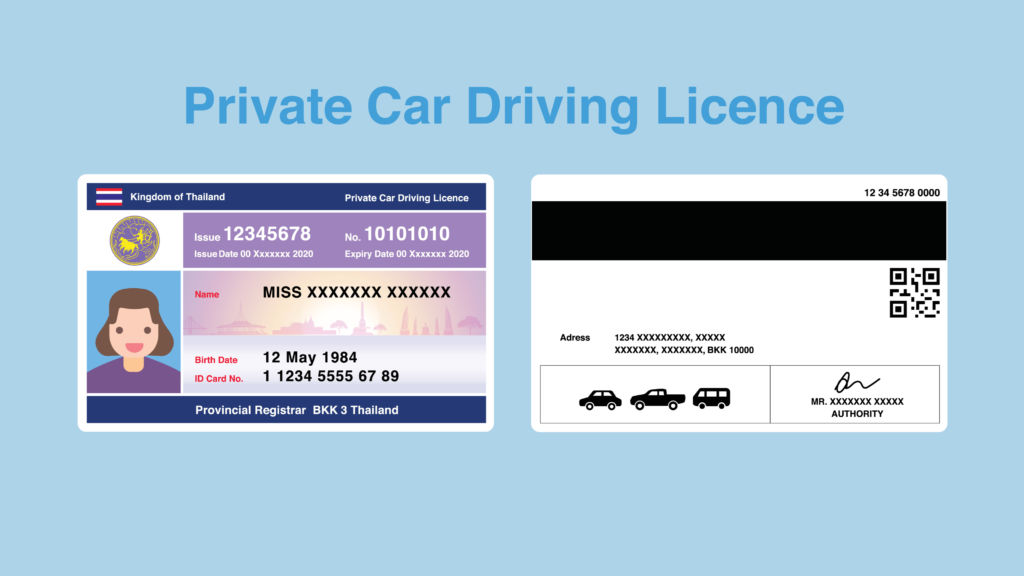Thai driving license renewal 2024 is a straightforward process, but understanding the requirements, fees, and procedures can make the experience smoother. Whether you’re a Thai citizen or an expat, keeping your driving license up to date is crucial for legal driving and avoiding penalties. For foreigners Thai driving license renewal 2024, there are some additional considerations and requirements compared to Thai citizens. This guide provides a detailed overview of everything you need to know about renewing your Thai driving license this year.
Requirements for Renewal
Existing Driving License: You must present your current Thai driving license. It should be in good condition and not expired for more than one year.
Identification Documents: A valid Thai ID card is required for Thai citizens. Expats need to provide their passport, visa, and residence certificate or work permit.
Health Certificate: A recent health certificate from a licensed medical professional may be necessary, especially if your license has expired for an extended period or if there are changes in your health status.
Proof of Address: A recent utility bill or similar document showing your current address is required.
Photographs: Recent passport-sized photos (usually 2) might be needed, though some locations can take your photo on-site.
Additional Requirements for Foreigners
Visa and Residence Documentation: Foreigners must provide a valid passport, visa, and proof of residence. This can include a residence certificate, work permit, or other documents proving legal residency in Thailand.
Health Certificate: Foreigners may also need to provide a recent health certificate. The requirement can vary based on the specific DLT office and the duration of the license’s expiration.
Language Barrier: While most DLT offices in major cities can handle English-speaking foreigners, it’s helpful to bring a Thai-speaking friend or a translator if needed.
Procedures for Renewal
Visit the Local DLT Office: Locate your nearest DLT office. It’s best to check their website or call ahead to confirm operating hours and whether you need an appointment.
Submit Documents: Bring all required documents and submit them at the counter. The staff will review your documents and guide you through the next steps.
Take the Vision Test: You will need to undergo a vision test to ensure you meet the minimum visual acuity requirements for driving.
Pay Fees: Pay the renewal fees at the designated counter. Keep the receipt as proof of payment.
Complete the Application Form: Fill out the application form provided by the DLT office. Ensure all information is accurate and complete.
Receive Your New License: After processing, you will be issued a new driving license. The time required can vary, but you should typically receive it the same day or within a few days.
Procedures for Foreigners
Visit the Local DLT Office: Foreigners should visit the DLT office in person, as online renewal is not typically available.
Submit Additional Documents: Along with the standard documents required for Thai citizens (like the current driving license and photos), foreigners need to present their passport, visa, and residence documentation.
Verification of Documents: The DLT office will verify your documents, which may include additional checks for residency status.
Pay Fees: The fee structure for foreigners is generally the same as for Thai citizens, but it’s important to confirm with the DLT office.
Vision Test and Application Form: Like Thai citizens, foreigners will need to undergo a vision test and fill out the application form.
Fees
The fees for renewing your Thai driving license vary based on the type of license and the duration of renewal. As of 2024, the typical fees are:
- Car License Renewal (5 Years): Approximately 200-500 THB.
- Motorcycle License Renewal (5 Years): Approximately 200-500 THB.
- Additional Charges: There may be extra fees for medical certificates or if you require urgent processing.
It’s advisable to check with the local Department of Land Transport (DLT) office for the most accurate fee structure.
Conclusion
Thai driving license renewal 2024 is a manageable process if you’re aware of the requirements, fees, and procedures. By gathering the necessary documents, understanding the fee structure, and following the outlined steps, you can ensure a smooth renewal experience. Stay informed about any changes to the process and visit your local DLT office for the most accurate information.
If you have any further questions or need assistance, don’t hesitate to contact your local DLT office or visit their official website for more details.
FAQs
1. How early can I renew my Thai driving license?
You can renew your Thai driving license up to 90 days before its expiration date. It’s recommended to renew it early to avoid any last-minute issues.
2. What should I do if my license has expired for more than one year?
If your license has expired for more than one year, you may need to retake the driving test or provide additional documentation, such as a medical certificate.
3. Can I renew my driving license online?
As of 2024, online renewal is not widely available for Thai driving licenses. You will generally need to visit a DLT office in person.
4. What if I lose my driving license before renewal?
If you lose your driving license before renewal, report the loss to the police and obtain a police report. You will need this report when applying for a replacement license.
5. Can foreigners renew their Thai driving licenses?
Yes, foreigners can renew their Thai driving licenses as long as they provide the necessary documents, including their passport, visa, and residence certificate or work permit.
6. Are there any additional fees for foreigners?
Generally, the fees for renewing a driving license are the same for both Thai citizens and foreigners. However, it’s advisable to check with the local DLT office for any specific charges that may apply.







